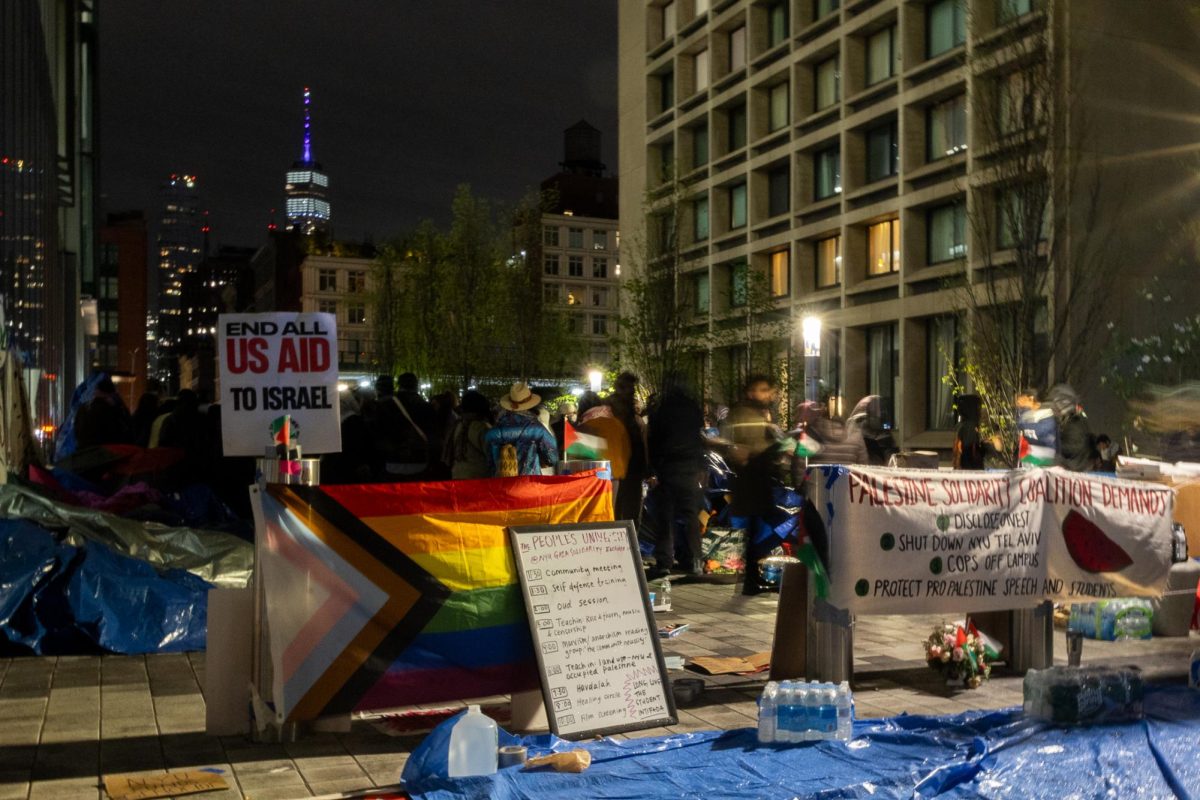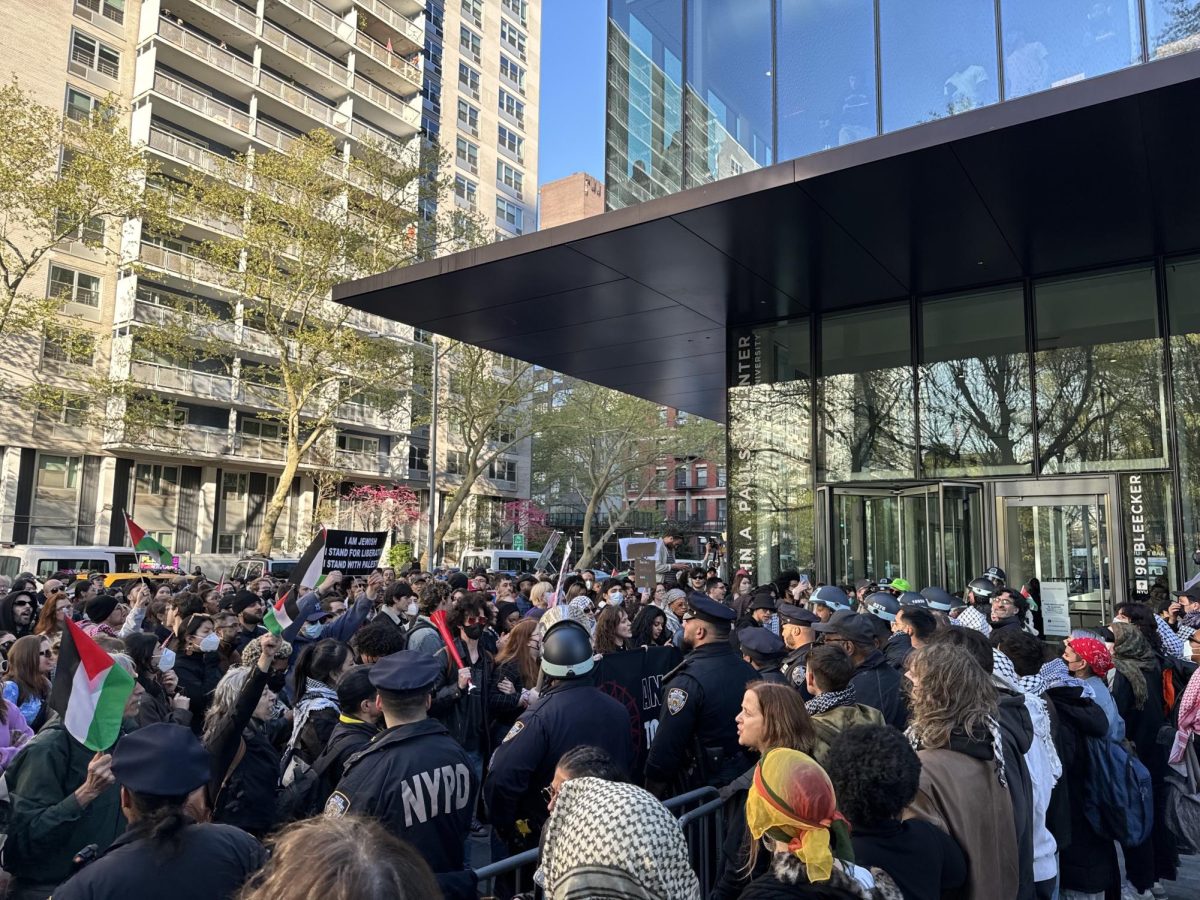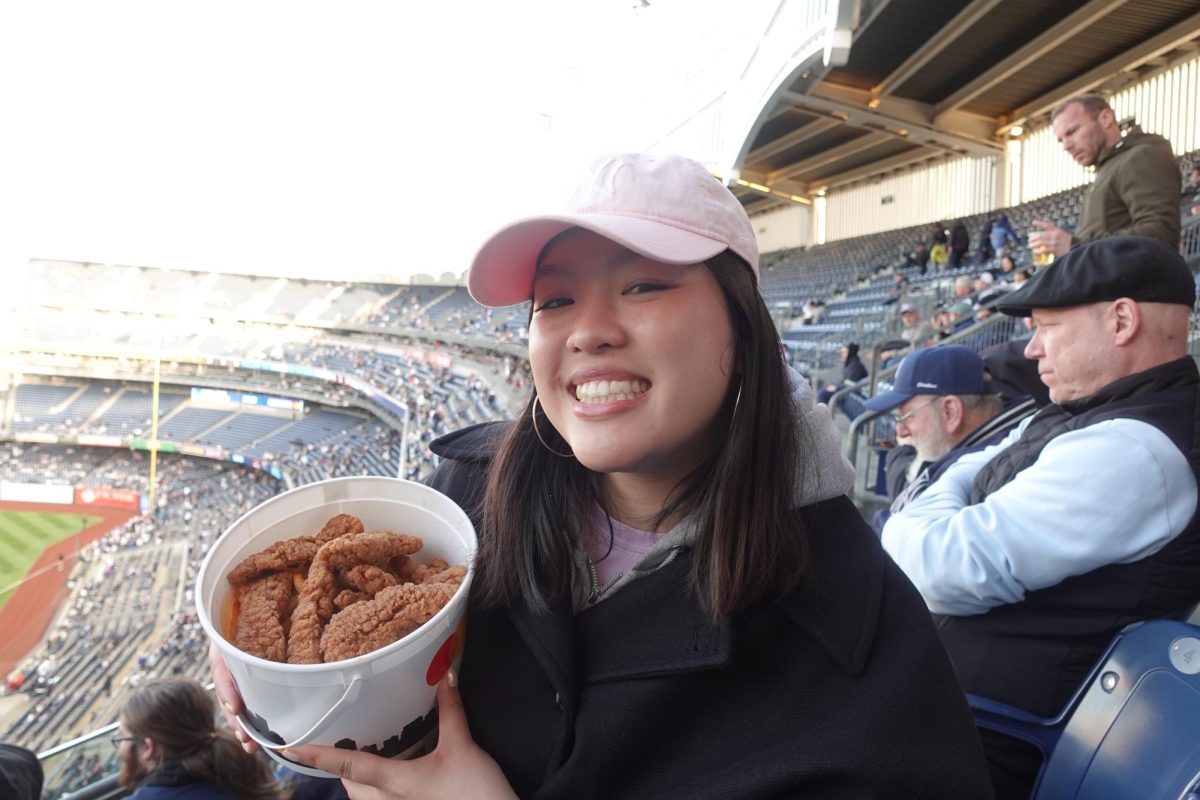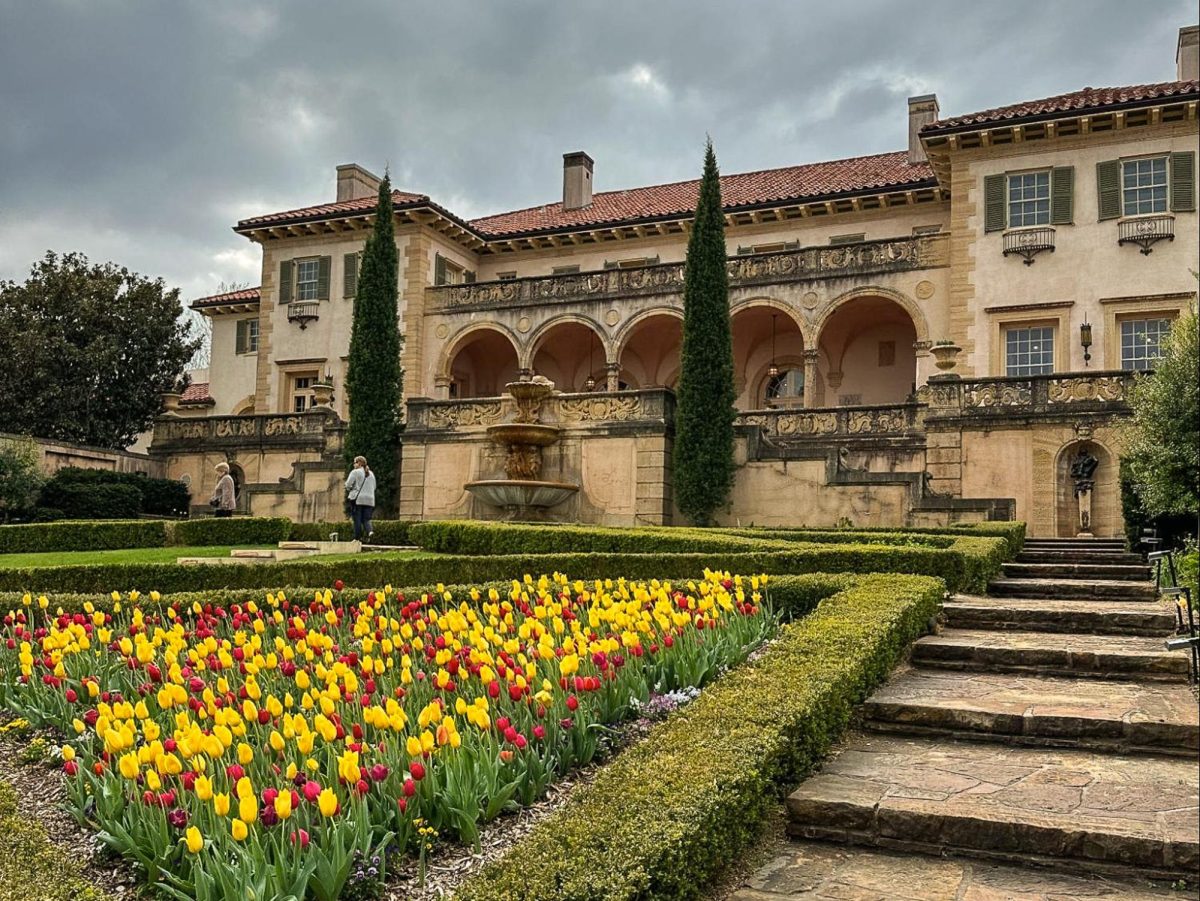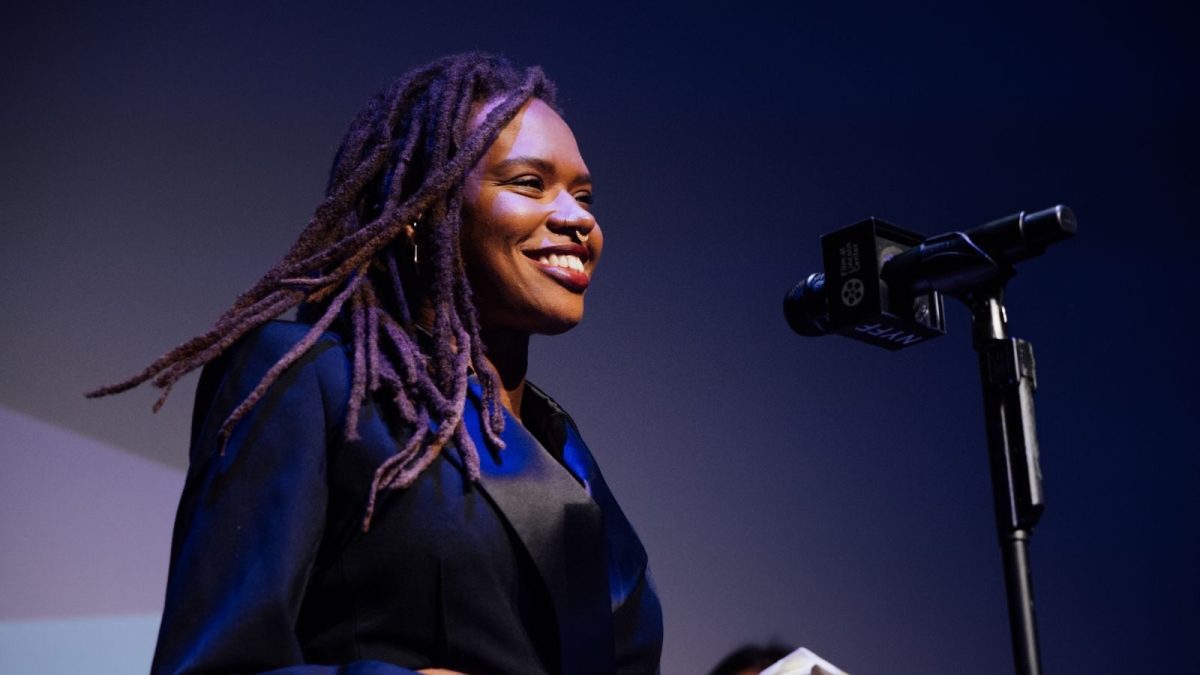“All Dirt Roads Taste of Salt” has been repeatedly described by critics as a work of sensorial poetry — more visual lyricism than narrative cinema. Following the story of a Black woman from Mississippi from early childhood to late adulthood, the new A24 film delves deep into the themes of memory, childhood and change, exploring how the seemingly inconsequential or quiet moments of our adolescence shape our worldviews.
Director Raven Jackson’s debut feature film, “All Dirt Roads Taste of Salt” premiered at the Sundance Film Festival in January 2023 and recently finished a run at this year’s New York Film Festival. The film is a collaboration between NYU graduates who met during their time in the Tisch Graduate School film program, including Jackson, producer Maria Altamirano and cinematographer Jomo Fray.
WSN sat down with Jackson over Zoom to discuss her connection to nature, as well as her cinematic portrayals of the small things — the objects, symbols, environments and moments that make up a person’s life.
This interview has been edited for length and clarity.
WSN: Change is a major theme in the film. Mack’s identity changes from daughter to mother to aunt from scene to scene, but the moments that you linger on are visually very still. What does it mean to you for Mack to always be changing, but for the moments on which you linger on to be more stagnant and quiet?
Jackson: That’s an interesting question because I see it as a mix. I see it as some moments that are locked off camera, and there are some — like the dancing scene — with the camera following it. I will say, even in scenes where the camera is more static, there’s still a lot of movement happening, or something being said that speaks to the change of a relationship, the change of family, or someone being lost, you know? Even with the scene of the hands in the car, where the three hands are on top of each other, I’m thinking of how these details speak to the different generations of this family and how this family has just now changed.
WSN: Your film is often described as visual lyricism. Does poetry inspire you?
Jackson: Yeah, it does. I’m a poet — my background is in poetry. Creating “All Dirt Roads,” even though it’s different, it felt like writing a poem for me. For me, the different mediums I work with feed each other in an interesting way, even while recognizing their differences. And so, I am inspired by poetry. A line from one of Lucille Clifton’s poems actually opens the script, so it was definitely something I turned to when thinking of certain moods for things, or looking for inspiration or things that evoke the sense of place for me. I’m trying to get that feeling. When writing, that was definitely something I turned to.
WSN: The people and places that shaped us are definitely a big theme in the film. How do you see your experience growing up in the South reflected in the film?
Jackson: I grew up fishing, and so all the fishing elements feel very close to me — like scaling the fish, the brim with a spoon, learning how to skin a catfish, all of that, the dirt by a river, the sounds of nature. I grew up in Tennessee, and my parents are from the South. My mom’s from Mississippi, where we shot the film. We shot the grocery store scene with Mack and Wood at a grocery store that’s, like, a few minutes away from where my mother grew up. And so it’s a fiction film, but there are a lot of emotional truths and details that are true to me. In some of the scenes, there are portraits on the walls from members of my family, or my family albums rather. And so again, it’s a fiction film, but a lot of the details in it feel very close.
WSN: So setting it in Mississippi where your mother is from, is that why there is such a focus on the theme of motherhood and matriarchal communities?
Jackson: In a really big way it felt like I was having a conversation with my mom’s side of the family, and it was a conversation with my paternal grandma around the class, around the practice of eating clean dirt when it came to the title — which was first for a poem, but eventually became for the film too. A lot of the film has been a lot of conversation with family in general, but especially my mother’s side of the family. Shooting in Mississippi was a gift in that way, but yeah, it was all organic.
WSN: Did you always know that you wanted to jumble the timeline of the film, breaking up Mack’s life and stitching it together through small objects and sound cues?
Jackson: Yes, I did know I wanted to explore her life in that way. For me, it’s like, all these moments are now. There’s no past, no future, no flashbacks, no flash forward. It’s like all of them are now. I wanted it to be a very fluid viewing experience. And that feels like you’re spilling through her life or that her life is spilling over you, you know? I knew that from the writing stage. And it was just after production, like really being intentional with building that emotional journey of her character, to have that fluid experience that shows you a life, you know?
WSN: What were some of the biggest lessons in filmmaking you took away from your time at the Tisch Graduate program?
Jackson: I will say one of the things I’m most grateful for leaving NYU with are the collaborators I left with. Maria Altamirano, who was a day-one producer on the film — I met her in the film program. And Jomo Fray, who shot the film — I met him in the grad film program. So it’s been very special to do my short “Nettles” a few years back together, and then do this feature together; it’s been really special to grow in that way. And then I think, you know, leaving NYU, I was really grateful for the ways I was taught the importance of collaboration, but also the importance of owning your voice. Of course, in film school you get important lessons, but at a certain point, you have to also own “Who am I in all this,” you know what I mean? Who am I? And I think that was very big after I left NYU, that period where I’ve invested in that time of, like, knowing — truly knowing — who I am as a filmmaker. And so I’m grateful for that period. And I’m grateful for the lessons that led me to being able to know what is and isn’t for me. I think it’s an important sifting process after school.
WSN: Do you have any advice for aspiring directors who are just starting out and want to make some experimental, more visually lyrical films like you do?
Jackson: Similar to what I was just saying, know for yourself. Again, it’s going to be an evolving process. But knowing what you are interested in as a filmmaker, and not looking to the left or right or to what other people are interested in. What are you interested in as a filmmaker? What is important to you? And trusting in that, and also trusting that you’ll find your people. I mean, if it’s something that you truly believe in, and you know for yourself that it’s important for you to bring into the world, like, protect that.
When I was bringing this film into the world, Maria and I, we pitched it so many times. Not everyone was interested in taking a leap with us, and we were unapologetic about what we were interested in bringing into the world. I think that was important to eventually get the supporters we got on the film because we knew what it was, why we’re making it, and we weren’t willing to shift to make it more comfortable for somebody else. You know, if it wasn’t for them, it wasn’t for them. And I think eventually getting to that point with projects that might be taking a risk, but that you know what your non-negotiables are on it, is important, and trusting that if it’s not for somebody, that doesn’t mean it won’t be for everybody.
Contact Liv Steinhardt at [email protected].

